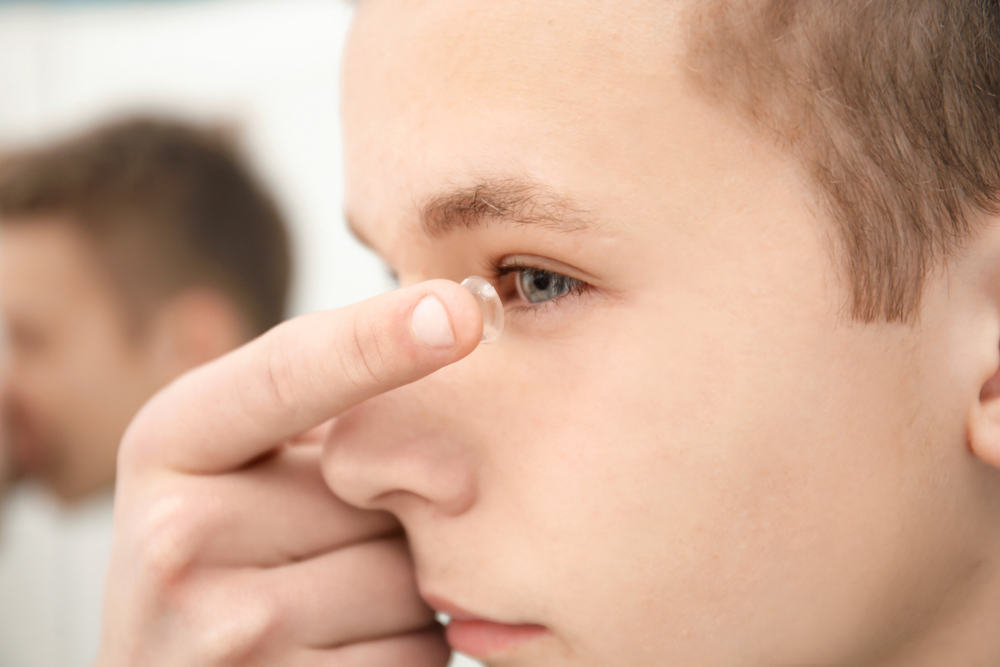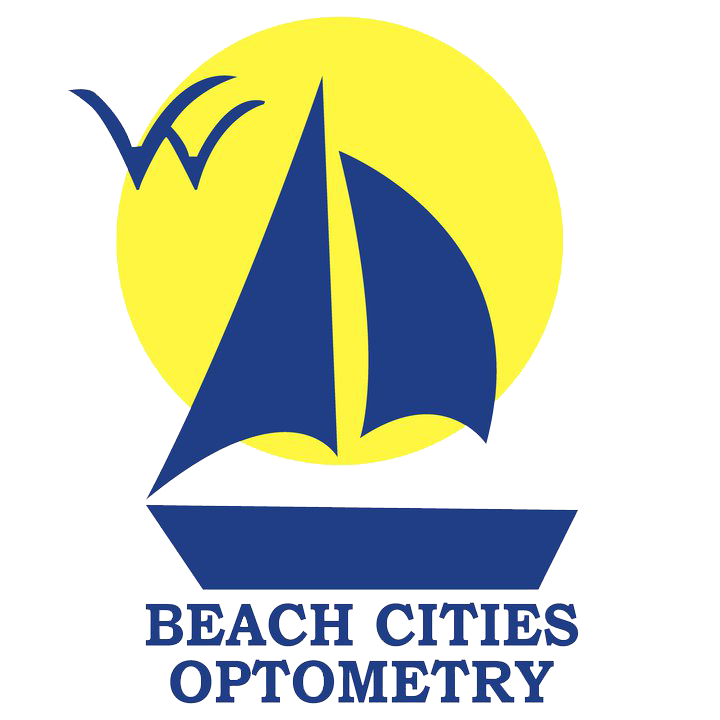
Contact lenses have become a popular alternative to traditional eyeglasses for vision correction. They offer convenience, comfort, and a more natural appearance. If you're considering contact lenses but are unsure where to start, this guide will walk you through the different types of contact lenses available, helping you make an informed decision.
Glasses vs. Contact Lenses
When it comes to correcting vision, you have two primary options: glasses or contact lenses. Glasses are a tried-and-true method that has been used for centuries. They are easy to use, require minimal maintenance, and come in various stylish designs. However, some people find glasses cumbersome.
Contact lenses offer a more discreet and natural vision correction solution. They sit directly on the eye's surface and move with your eyes, providing a wider field of view and greater freedom of movement. Contact lenses can correct various vision problems, including nearsightedness, farsightedness, astigmatism, and presbyopia.
Different Types of Contact Lenses
Daily wear contact lenses are the most common type and are designed to be worn during the day and removed before sleep. These lenses are typically made of soft, flexible materials that allow oxygen to reach your eyes, ensuring comfort throughout the day. They require regular cleaning and disinfection to maintain hygiene and prevent eye infections.
Extended wear contact lenses are designed to be worn continuously. They are made from highly breathable materials that allow more oxygen to reach your eyes, reducing the risk of discomfort and dryness. While convenient, extended wear lenses require strict adherence to cleaning and replacement schedules to prevent eye infections.
Toric contact lenses are specifically designed to correct astigmatism, a common condition that causes blurred or distorted vision. Unlike spherical contact lenses, toric lenses have different powers in different meridians of the lens, allowing them to compensate for the irregular shape of the cornea. These lenses are available in both daily wear and extended wear options.
Multifocal contact lenses are designed for individuals with presbyopia, a condition that affects near vision as we age. These lenses have multiple lens powers, allowing you to see clearly at various distances. Some multifocal contact lenses use a simultaneous vision design, while others use a segmented design, where specific areas of the lens are dedicated to near or distance vision.
Factors to Consider When Choosing Contact Lenses
When choosing contact lenses, there are several factors to consider:
- Vision Correction Needs: Determine whether you need contact lenses for nearsightedness, farsightedness, astigmatism, or presbyopia.
- Lifestyle: Consider your lifestyle and daily activities. If you have an active lifestyle or participate in sports, you may prefer contact lenses that offer greater stability and durability.
- Comfort: Comfort is crucial when wearing contact lenses. Some people may find certain types of lenses more comfortable than others. It's important to try different types and brands to find the one that suits you best.
- Eye Health: Consult with an eye care professional to ensure your eyes are healthy and suitable for contact lens wear. Some conditions, such as dry eyes or allergies, may require specific types of lenses or additional care.
- Maintenance: Consider the level of maintenance required for each type of lens. Daily wear lenses require daily cleaning and disinfection, while extended wear lenses may need less frequent cleaning but more regular replacement.
Tips for New Contact Lens Wearers
If you're new to wearing contact lenses, here are a few tips to help you get started:
- Consult an Eye Care Professional: Schedule an appointment with an optometrist who can assess your vision and recommend the most suitable type of contact lenses for you.
- Learn Proper Handling and Care: Ensure you understand how to properly handle and care for your contact lenses. This includes cleaning, disinfecting, and storing them correctly.
- Follow a Regular Replacement Schedule: Adhere to the recommended replacement schedule for your contact lenses. Using lenses beyond their recommended lifespan can increase the risk of eye infections and discomfort.
- Avoid Sleeping in Your Lenses: Unless approved by an eye care professional, avoid sleeping in your contact lenses. Sleeping in lenses not designed for extended wear can lead to eye irritation and infections.
- Give Yourself Time to Adjust: It may take a few days or weeks to get used to wearing contact lenses. Be patient and give yourself time to adjust to the new sensation and routine.
Finding the Right Contact Lenses for Your Needs
Choosing the right contact lenses is a personal decision that depends on various factors such as your vision correction needs, lifestyle, and comfort preferences. By understanding the different types of contact lenses available and considering the factors discussed, you can make an informed choice that suits your unique needs. With the right contact lenses, you can enjoy clear vision and the freedom to live your life to the fullest.
Are you ready to explore the world of contact lenses? Schedule an appointment with our optometrist to find the perfect contact lenses for your vision correction needs, visit Beach Cities Optometry in our Manhattan Beach, California, office. Call (310) 906-4426 to book an appointment today.







